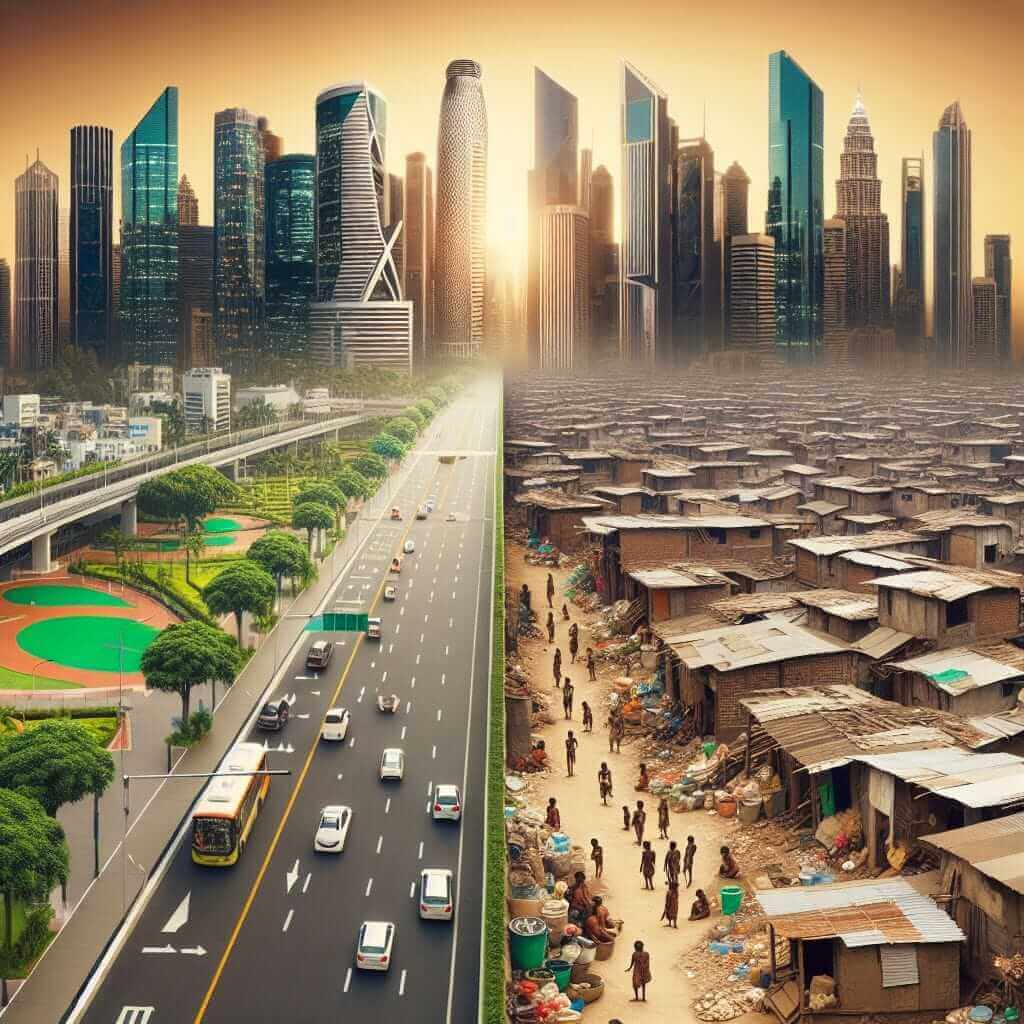The IELTS Reading section is a crucial part of the IELTS test, demanding a solid understanding of complex texts and the ability to answer varied types of questions about them. One common topic in these texts involves global challenges, including “What are the challenges of addressing global inequality?” This subject has been featured multiple times due to its relevance and complexity. With growing global interconnectedness, global inequality remains a prominent issue, making it likely to reappear in future exams. In this article, we will delve into a sample reading text on this topic, create corresponding questions, provide answers, and offer strategies for tackling such texts efficiently.
Reading Passage: Addressing Global Inequality (Medium Text)
Challenges in Addressing Global Inequality
Global inequality, encompassing disparities in wealth, education, health, and access to opportunities, remains a pressing issue in today’s interconnected world. Numerous challenges complicate efforts to address this issue effectively.
One significant challenge is the disparity in economic growth between countries. Developed nations often experience steady economic growth while many developing countries struggle with poverty and low economic productivity. This economic divide is further exacerbated by unequal access to technology and infrastructure, which hampers the ability of poorer nations to compete in the global market.
Another challenge is political instability in regions plagued by conflict. Political unrest disrupts education systems, health services, and economic development, perpetuating cycles of poverty and inequality. Organizations attempting to provide aid often face logistical hurdles and security threats, reducing the efficacy of their interventions.

Furthermore, social inequality, including gender and racial disparities, plays a critical role in perpetuating global inequality. In many parts of the world, women and minority groups face systemic barriers to education and employment, limiting their potential and contributions to economic growth.
Environmental factors also compound the issue. Climate change disproportionately affects poorer nations, which lack the resources to mitigate the impact of extreme weather events. These occurrences can devastate local economies, pushing already vulnerable populations deeper into poverty.
Global inequality also presents moral and ethical dilemmas for wealthier nations, which must balance national interests with humanitarian responsibilities. Effective solutions require international cooperation and comprehensive policies that address the root causes of inequality rather than merely alleviating symptoms.
Despite these challenges, hopeful signs exist. Initiatives such as sustainable development goals (SDGs) emphasize inclusive growth, gender equality, and poverty reduction. Collaborative efforts among nations, non-governmental organizations, and local communities can help bridge the inequality gap. However, achieving these goals demands persistent effort and innovative strategies to navigate the complex landscape of global inequality.
Questions
Multiple Choice
-
What is one significant challenge mentioned in the text in addressing global inequality?
a) Global cooperation
b) Disparity in economic growth
c) Technological advancements
d) Urbanization -
What is a consequence of political instability according to the passage?
a) Improved educational systems
b) Enhanced economic development
c) Disruption of health services
d) Stability in conflict regions
True/False/Not Given
- Developed nations often face significant challenges in economic productivity.
- Political unrest contributes to cycles of poverty and inequality.
- Environmental factors mainly affect wealthier nations more than poorer ones.
Matching Information
-
Match the factors with their corresponding impacts.
- Economic Disparities: _____
- Political Instability: _____
- Social Inequality: _____
- Climate Change: _____
a) Limits access to technology
b) Amplifies gender and racial disparities
c) Creates ethical dilemmas for wealthier nations
d) Disrupts developmental services
Answer Key & Explanations
Multiple Choice
-
b) Disparity in economic growth
Explanation: The text highlights that economic growth disparity between developed and developing countries is a major challenge. -
c) Disruption of health services
Explanation: The passage states that political instability disrupts education systems, health services, and economic development.
True/False/Not Given
-
False
Explanation: The passage states that developed nations experience steady economic growth, not significant challenges. -
True
Explanation: The text mentions that political instability perpetuates cycles of poverty and inequality. -
False
Explanation: The passage explains that climate change disproportionately affects poorer nations.
Matching Information
-
- Economic Disparities: a) Limits access to technology
Explanation: Economic growth disparities are highlighted along with limited access to technology for poorer nations. - Political Instability: d) Disrupts developmental services
Explanation: Political instability disrupts education and health services, affecting development. - Social Inequality: b) Amplifies gender and racial disparities
Explanation: Social inequality involves systemic barriers faced by women and minority groups. - Climate Change: c) Creates ethical dilemmas for wealthier nations
Explanation: Environmental challenges create moral and ethical dilemmas for wealthier nations.
- Economic Disparities: a) Limits access to technology
Common Mistakes and How to Avoid Them
Candidates often misinterpret keywords or fail to understand the overall context, leading to incorrect answers. It’s essential to read each question thoroughly and refer back to the text to validate your answers. Practice identifying key points and note whether the information is explicitly stated or implied.
Vocabulary
Key Terms
- Disparity (n.) /dɪsˈper.ə.ti/: Inequality or difference in some respect.
- Hamper (v.) /ˈhæm.pər/: To hinder or obstruct.
- Mitigate (v.) /ˈmɪt.ɪ.ɡeɪt/: To make something less harmful or severe.
- Logistical (adj.) /ləˈdʒɪs.tɪ.kəl/: Pertaining to logistics and planning.
- Systemic (adj.) /sɪˈstem.ɪk/: Relating to or affecting the entire system.
Grammar
Important Grammar Structures
- Complex Sentences: “Despite these challenges, hopeful signs exist.”
Example: Despite the harsh weather, we completed the marathon. - Relative Clauses: “In many parts of the world, women and minority groups face systemic barriers to education and employment, limiting their potential.”
Example: The book, which I borrowed from the library, is very interesting.
Final Tips
To score high in the IELTS Reading section, practice regularly with diversified texts. Focus on improving your skimming and scanning skills and understanding the context and specific details. Engage with various types of questions and review detailed explanations to clarify doubts. Consistently expand your vocabulary and familiarize yourself with complex sentence structures to enhance comprehension.
For further practice, you might find these articles useful: